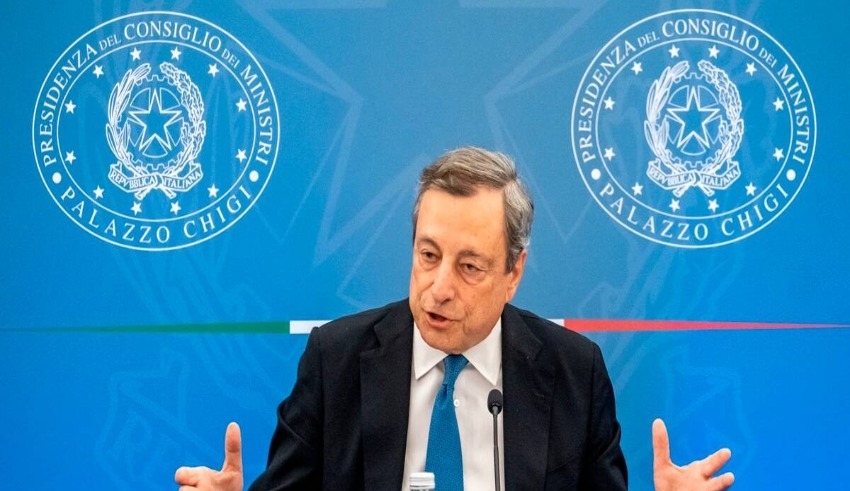
Last updated on August 10th, 2022 at 12:30 pm
![]() ITALY: After a day of political drama that threatened to topple Italy’s national unity government, President Sergio Mattarella rejected Prime Minister Mario Draghi’s resignation on Thursday (July 14).
ITALY: After a day of political drama that threatened to topple Italy’s national unity government, President Sergio Mattarella rejected Prime Minister Mario Draghi’s resignation on Thursday (July 14).
ECB President Mario Draghi stated Thursday that he would quit after the 5-Star Movement, a coalition party, failed to support him in a confidence vote over his strategy to curb increasing prices.
Since February 2021, Prime Minister Draghi has led a broad coalition administration.
After arriving at the Quirinale Palace in Rome to hand in his resignation, President Sergio Mattarella, Italy’s most powerful political figure, implored Draghi to reconsider.
Draghi, an unelected technocrat, was summoned by Mattarella to give a speech to parliament in order to have a better understanding of the political situation.
According to political sources, Draghi is scheduled to speak before parliament on Wednesday, but he is anticipated to travel to Algeria, a key gas supplier, on Monday and Tuesday before then.
A general election scheduled for the first half of 2023 has exacerbated divisions among Italy’s political parties over issues such as the rising cost of living and how to respond to Russia’s invasion of Ukraine.
Related Posts
Draghi, Italy’s sixth prime minister in the last decade, has garnered praise for his role in guiding the country through the coronavirus crisis and raising Italy’s international standing as a result of his efforts.
Within Draghi’s government, tensions were running high over the confidence vote. 5-Star members asked Draghi to go further in helping people deal with inflation, even if it meant raising government borrowing rates even higher.
Draghi has previously stated that he would not want to lead a government without the 5-Star Movement, which emerged as the largest party in the 2018 election but has since suffered defections and a decrease in public support.
A new caretaker leader can be found or an early election can be called by Mattarella, who is 81 years old, in order to encourage Draghi to form another government.
Also Read: Top 10 best presidents of the Philippines 2022
There have been no fall elections in Italy since World War II due to the fact that the budget is generally put up and approved by parliament at this time of the year.
Because of the potential for the Draghi government’s downfall, investors’ demand for Italian debt has risen substantially and the value of Italian stocks has dropped to its lowest point since late 2020.
The instability comes at a difficult time for Italy, the eurozone’s third-largest economy, as the ECB begins to tighten its monetary policies.
New tools are being developed by the European Central Bank (ECB) in an effort to limit the widening disparity between German borrowing costs and those of highly indebted countries like Italy.
Reassurance had been provided by Draghi that Italy would adhere to any terms tied to the new mechanism, but his departure would bring additional uncertainty to the table.





























